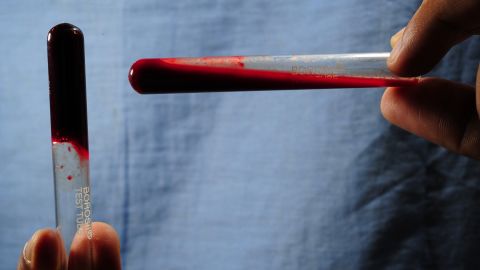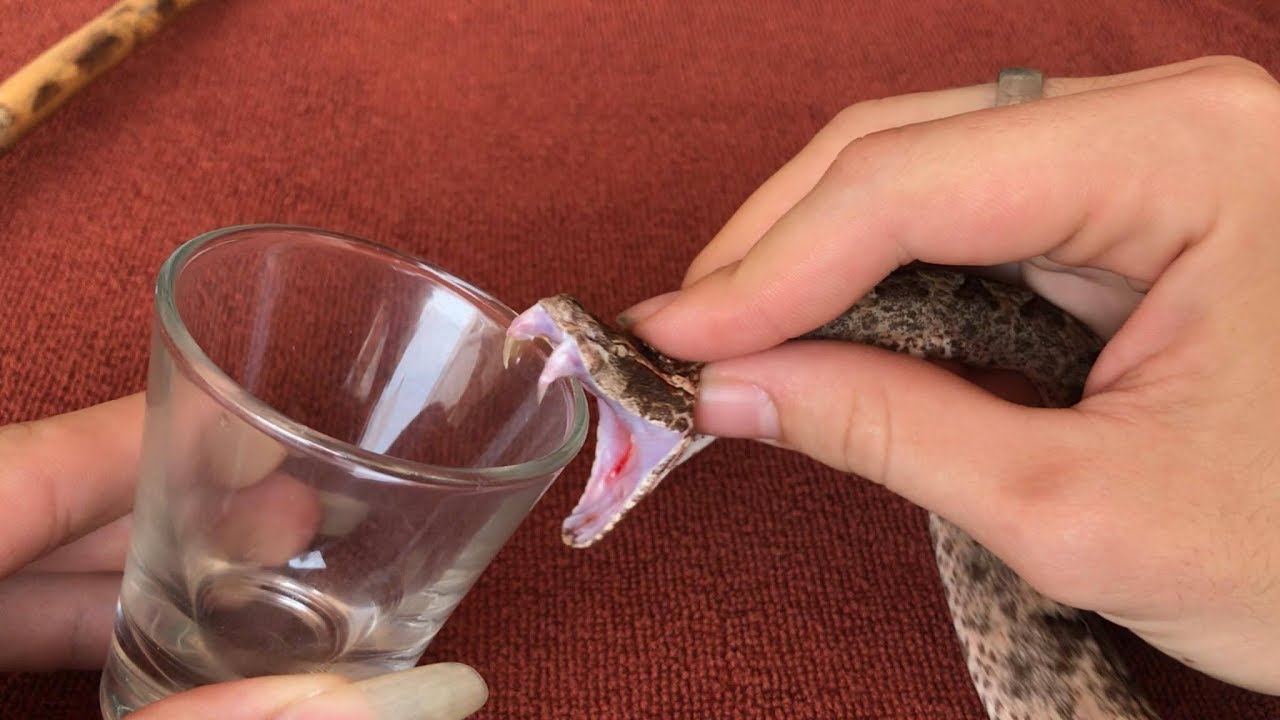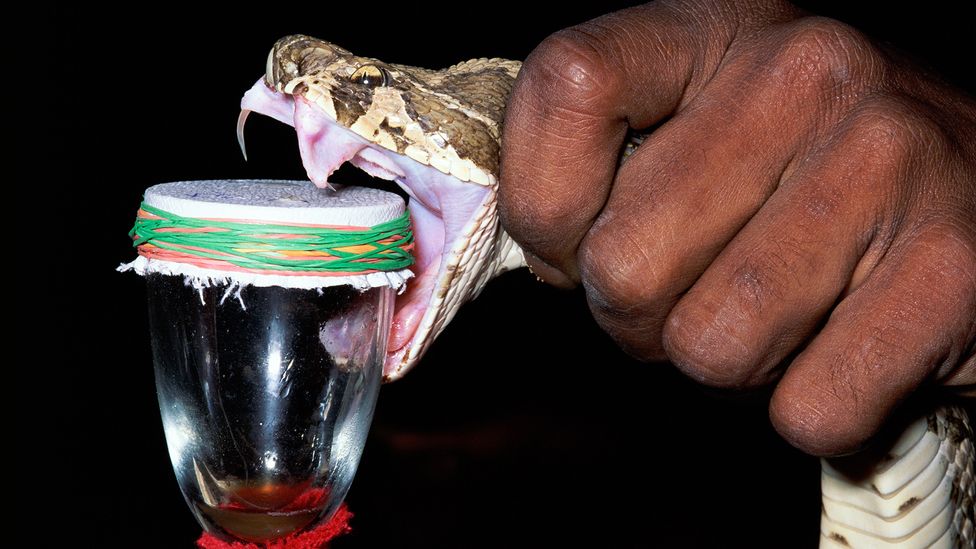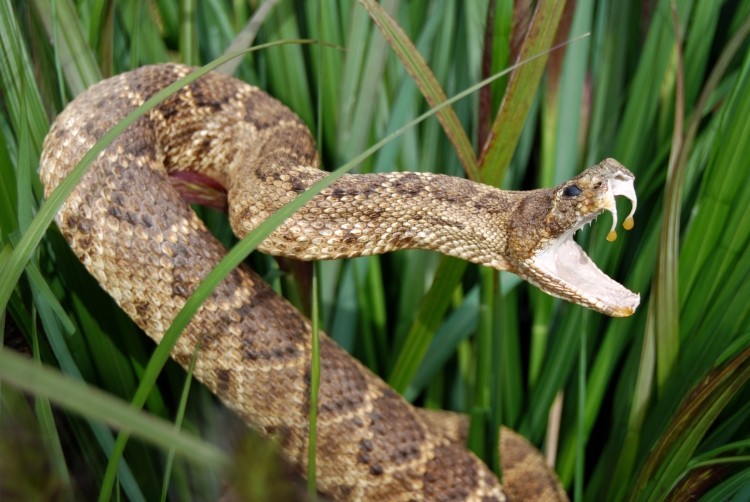The Effects Of Snake Venom On Human Blood
The effects of snake venom on human blood is very deadly. Snake venom contains hundreds of proteins, each with a unique harmful effect on the human body.
Author:Dr. Felix ChaosphereReviewer:Xander OddityApr 25, 20225 Shares608 Views

The effects of snake venomon human bloodare very deadly. Snake venom contains hundreds of proteins, each with a unique harmful effect on the human body. Even among the same species, a snake's poison can vary greatly.
Types Of Snake Venom
- Overall, snakes harm us by assaulting the circulatory (blood) and/or neurological systems.
- Haemotoxic venom targets the blood. There's nothing left to stop the bleeding when the venom punches holes in blood vessels, causing them to leak.
- Other venoms can raise or lower blood pressure, and stop or cause bleeding. They're all bad.
- Neurotoxic venomattacks the neurological system and blocks nerve signals to the muscles.
What Does The Snake Venom Do To Human Body?
In some cases, they can cause internal bleeding by damaging the outer membrane of capillary veins. Occasionally, they can also stimulate the blood clotting mechanism, resulting in the formation of blood clots in and around the circulatory system. These have the capability of obstructing blood vessels and causing a stroke or a heart attack to occur.
Paralysis starts in the brain and moves down the body till it paralyzes the diaphragm and the patient can't breathe. Ptosis is a common symptom of this. Necrosis might develop around the bite. The venom kills adjacent muscles, tissues, and cells. Long-term, this can result in amputations, limb loss, or numerous skin grafts.
Snakes inflict more harm and death on people than any other venomous animal, including spiders, scorpions, and jellyfish. Because venomous snakes are common in rural, tropical locations like Sub-Saharan Africa and Southeast Asia. In Australia and North America. Because snakes hide on the ground, farmers, agricultural workers, and children might easily disturb them and get bitten.
Every year, snakes bite up to five million people globally. Around 100,000 die, and 400,000 are injured or disfigured. Most countries don't record statistics on snakebites, and study into the issue is limited. Snake venom is created in glands behind the snake's head and released through its fangs.
What Works As Cure?
Anti-venoms, the antidotes are manufactured by extracting snake venom and injecting it diluted into sheep or horses, which develop antibodies against the effects of snake venom on human blood. After that, the animal's blood is utilized to manufacture anti-venom, but there's a catch.
Anti-venoms are pricey and in restricted supply. Governments and health officials have shown little interest in training doctors to diagnose and treat venomous snake bites. Safe and effective anti-venoms are uncommon, and one of the finest is running out.
So now it's time for another.
A team of researchers from the Liverpool School of Tropical Medicine is busy collecting venom from hazardous snakes to produce a new generation of anti-venom medication for every dangerous snake in Sub-Saharan Africa.
Experts are divided on whether a single universal anti-venom (targeting several snake venom types) is better than multiple anti-venoms targeting various snake species in distinct places. Both are probably valuable.
Snake Venom
Snake venom is a white or yellowish liquid produced in glands behind the snake's eyes and pushed to the fangs when it bites. The fangs operate as a hypodermic needle, instantly injecting venom into the unwary victim.
The cobra, puff adder, viper, rattlesnake, and mamba are all venomous snakes having front fangs. The snake's ancestor's poison was simple. But, according to study, venoms have become more sophisticated and toxic over time. Even within the same snake species and country, venoms can cause diverse effects on the body and respond differently to anti-venom.
South Asian kraits have a non-painful bite. They are known to enter homes while people are sleeping, mainly on floor beds. The victim may be agitated but will likely return to sleep, waking up immobilized - or not.

The Effect Of Snake Venom On Blood
Beware Of Snake-Bite Myths
Make no mistake, there are lots of myths on how to cope with just being bitten by a snake out there. Don't fall for any of them!
- Suctioning venomfrom a snakebite using the mouth or with any other suction equipment does not appear to be beneficial in any way. It may even speed the flow of venom into the bloodstream, according to specialists.
- In addition, cutting out the venomis not advised due to the possibility of making the wound even worse.
- Traditional herbal treatmentsare frequently used to try to treat mosquito bites in some countries, particularly in remote locations where health services are limited. However, this merely serves to prolong the time it takes for patients to reach a hospital for treatment.
There is a video on Reddit, that shows how venom is extracted from a snake and its effect on human blood.
"Mot every snake venom does that. Some snake venoms such as that of a rattlesnake do the opposite and cause internal bleeding."
_Shouia
"Interesting note: the hinged, somewhat articulated fangs make me believe that this is a pit viper like rattlesnakes."
_Rhudran
"you have a cup of blood, a random venomous snake, terrifying witch nails, and a violent housekeeper who is very passionate about their sweeping. this is like the beginning of a horror movie."
_Automatic_House4779
Conclusion
After a bite, patients should not move the affected limb and maintain their pulse rate as low as possible until they reach the hospital and receive anti-venom treatment, otherwise, the effects of snake venom on human blood may increase.

Dr. Felix Chaosphere
Author
Dr. Felix Chaosphere, a renowned and eccentric psychiatrist, is a master of unraveling the complexities of the human mind. With his wild and untamed hair, he embodies the essence of a brilliant but unconventional thinker. As a sexologist, he fearlessly delves into the depths of human desire and intimacy, unearthing hidden truths and challenging societal norms.
Beyond his professional expertise, Dr. Chaosphere is also a celebrated author, renowned for his provocative and thought-provoking literary works. His written words mirror the enigmatic nature of his persona, inviting readers to explore the labyrinthine corridors of the human psyche.
With his indomitable spirit and insatiable curiosity, Dr. Chaosphere continues to push boundaries, challenging society's preconceived notions and inspiring others to embrace their own inner tumult.

Xander Oddity
Reviewer
Xander Oddity, an eccentric and intrepid news reporter, is a master of unearthing the strange and bizarre. With an insatiable curiosity for the unconventional, Xander ventures into the depths of the unknown, fearlessly pursuing stories that defy conventional explanation. Armed with a vast reservoir of knowledge and experience in the realm of conspiracies, Xander is a seasoned investigator of the extraordinary.
Throughout his illustrious career, Xander has built a reputation for delving into the shadows of secrecy and unraveling the enigmatic. With an unyielding determination and an unwavering belief in the power of the bizarre, Xander strives to shed light on the unexplained and challenge the boundaries of conventional wisdom. In his pursuit of the truth, Xander continues to inspire others to question the world around them and embrace the unexpected.
Latest Articles
Popular Articles

